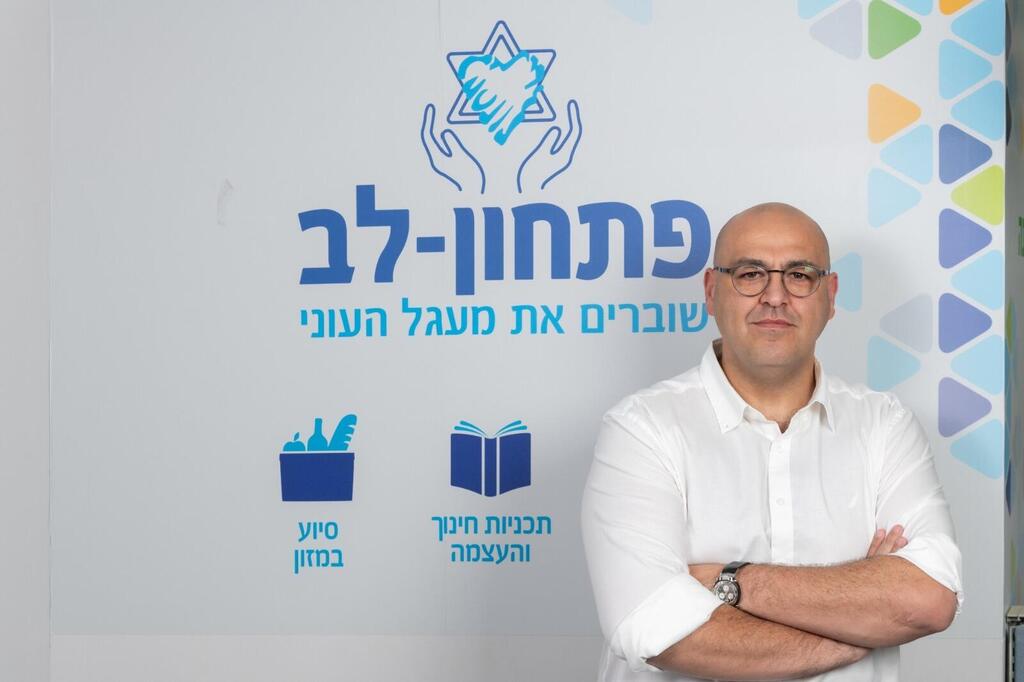
Poverty Report for 2022?
Brace Yourself for the Catastrophe Awaiting Us in Next Year's Report
Even this year, the National Insurance Institute of Israel's has published its annual poverty report, but it is not a significant event in Israel's poverty landscape. The truly dramatic news appears to be reserved for next year's report, with thousands of new families encountering poverty amidst the ongoing conflict, exacerbating the dire situation for families already trapped in the cycle of poverty in Israel. Unless the country undergoes significant changes across all fronts.
For over 80 days, Israel has been in a state of war with attention primarily focused on security and political matters. However, beneath the surface, a real catastrophe is unfolding in the realms of well-being and welfare, particularly poverty in Israel. At Pitchon-Lev, an organization dedicated to breaking the cycle of poverty in Israel, we have, in recent weeks, already been seeing it unfold before our eyes.
The current report reveals two significant data points that should give us pause to reflect. Over 300,000 Israelis have just this year entered the cycle of poverty (bringing the total to 1.98 million individuals below the poverty line). The situation of those already in poverty has significantly worsened. However, this is not the truly shocking news. This year's report, presenting data for 2022, is only a fore-taste of the 2023 statistics that we might see next year.
For example, when it comes to humanitarian aid and food baskets Pitchon-Lev provides weekly to thousands of families in poverty, costs during the war increased by 23%! This doesn't include displaced families or those families just now struggling to make ends meet. Rather it reflects, the situation of those already in poverty during this period.
Numerous other examples can be found in the various projects we operate, advocating for the rights of Israeli citizens, whether over the phone and in person. Since the beginning of the War, we have received hundreds of new requests every week for assistance with food baskets, support and advice on legal issues such as labor and employment, and property tax matters. Behind every request there are stories of people finding themselves suddenly grappling with the harsh and new reality of severe poverty.
Only last week, in a discussion in the Knesset, Reservist Soldier Yair Meshayev spoke about how he and his brother went, without hesitation, to defend the country. During this time, their family business collapsed. Now, in the midst of the ambush and military operations, he is trying to work out how to bring in money for the household and diapers for the children. Where is the State in all of this? It's washing its hands of the task and abrogating responsibility. It is leading people into the cycle of poverty, allowing them to fail, and only then attempting to address their needs. We witnessed this during the COVID-19 pandemic and similar operations, and we are seeing history repeat itself.
However, next year's poverty report doesn't have to be this bleak. It's not too late to fix things. It's no secret that so far, addressing poverty in Israel has been neglected and hasn't received a proper response. There has been no clear point of responsibility nor a directed hand to drive a process or make the change happen. Now is precisely the time for the State to initiate change, to take this task seriously, and formulate meaningful steps that include solutions involving all ministries and, most importantly, with actionable goals.
Action is needed in the form of a three-stage plan:
1 Immediate establishment of the National Authority for Combating Poverty with significant resources allocated to it, clear timelines to execute the tasks, all in the short term. All government ministries, without exception, must be have a seat at the table around which the war on poverty will be conducted - from the first day after the war.
2 Substantial expansion, both in scope and budget, of the holistic system to remove families from the cycle of poverty. While the State already provides various solutions to address poverty, action is needed to strengthen the system for both municipal and national authorities in five key and meaningful areas, with guidance for individuals throughout the processes. This includes social welfare rights utilization, financial management, employment placement, assistance for survival needs, and enhancing self-sufficiency.
3 Mid-term expansion of the Ministry of Interior's Food Card initiative to adapt it to new needs and the entire population living in poverty.
All these steps should be budgeted for immediately, and fully provisioned to be implemented simultaneously - starting tomorrow morning.
The numbers presented in the National Insurance Institute of Israel's Report are challenging. They reflect the stories of families and citizens during the COVID-19 era and the narratives of 2022. If the State does not take substantial action to address poverty, the story of Yair the reservist will be just one among many reflected in next year's poverty report.
Remember this when you see the grim numbers in next year's disturbing picture.
Eli Cohen, Pitchon Lev CEO.















